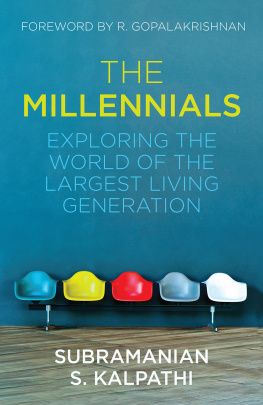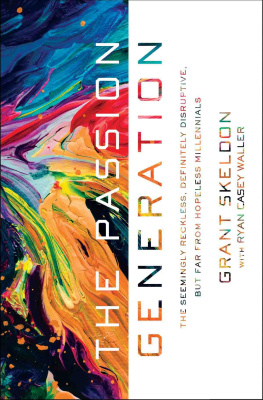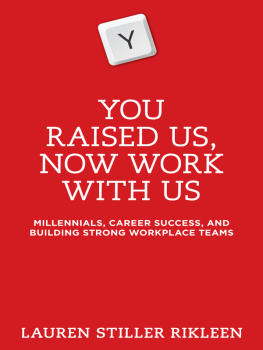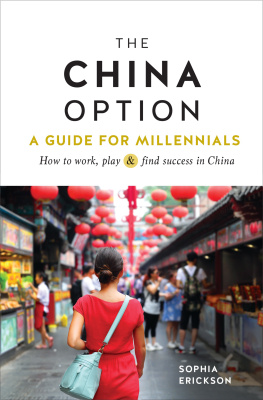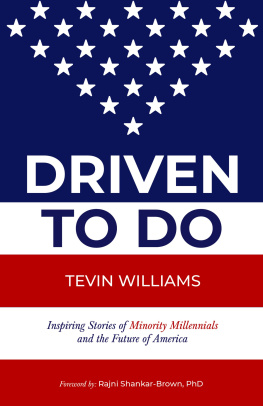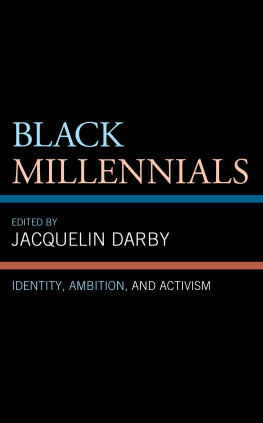Advance Praise
Read it and weep, millennials. Philip Klein efficiently demonstrates why it is remarkable that there is not generational conflict. Yet.
GEORGE F. WILL
Philip Klein has written a powerful wake-up call to the rising generation. He shows just how badly millennials have been disserved by decades of reckless public policy, but he also offers them some ways forward. This is essential reading for anyone who thinks our politics must care about the future.
YUVAL LEVIN, author of The Fractured Republic and editor of National Affairs
Both political parties in Washington are drunk on debt, and Klein is begging millennials to demand that DC sober up before its too late. Rather than bashing or ridiculing our generation with lazy stereotypes, Fear Your Future offers a rigorous diagnosis of the daunting fiscal challenges on our collective plate. Fellow millennials, please join me in taking a short break from scrolling through Instagram to read this short, digestible book. The clock is ticking, and were getting screwed.
GUY BENSON, political editor of Townhall.com and Fox News contributor
A terrific book. Philip Klein meticulously details the economic challenges faced by millennialsand why more government regulation, debt, and taxes are not the answer.
BRIAN RIEDL, senior fellow at the Manhattan Institute
Templeton Press
300 Conshohocken State Road, Suite 500
West Conshohocken, PA 19428
www.templetonpress.org
2019 by Philip Klein
All rights reserved. This book may not be reproduced, in whole or in part, including illustrations, in any form (beyond that copying permitted by Sections 107 and 108 of the U.S. Copyright Law and except by reviewers for the public press), without written permission from the publishers.
Set in Sabon LT Pro 9.9/14.4 by Gopa&Ted2, Inc.
Library of Congress Control Number: 2019949014
ISBN: 978-1-59947-573-8
eISBN: 978-1-59947-574-5
This paper meets the requirements of ANSI/NISO Z39.48-1992 (Permanence of Paper).
A catalogue record for this book is available
from the Library of Congress.
19 20 21 22 23 10 9 8 7 6 5 4 3 2 1
Printed in the United States of America.
For my sonIntroduction
I N EARLY 2018, a large recurring poll of young Americans conducted by the Harvard Kennedy School Institute of Politics asked, At this moment, would you say that you are more hopeful or fearful about the future of America? In response, 64 percentor nearly two-thirds of those aged 18 to 29said that they were more fearful, compared with just 33 percent who said they were more hopeful.
The abstract concept of the American Dream is often distilled to mean the hope and expectation that the next generation will be better off than their parents. Instead, as millennials transition to adulthood, their generation has been beset with a deep sense of foreboding about the grim future that awaits them.
It would be easy to dismiss this pessimism as a common feature of younger adults facing an uncertain future. Struggling to cope with all the natural shocks that flesh is heir to goes back to Shakespeare. Those who take a broader view of the sweep of history, who lived through tumultuous times and witnessed progress, have difficulty producing much sympathy for younger Americans.
As such, millennials may be the most mocked generation in American history. The stereotypes abound. Millennials all think theyre special snowflakes. They use social media to deliver play-by-play commentaries on their activities, from shopping for clothes to flossing their teeth. And of course, they have a psychotic obsession with avocado toast.
However, for all the joking directed toward them, millennials have legitimate reasons to be resentful, particularly toward baby boomers. It was the baby boomers who grew up during a massive postwar expansion in America, amassed tremendous wealth, selfishly refused to grapple with any of the nations serious problems, and left a staggering level of debt and obligations for future generations.
As millennials grow up and try to form families, they will be entering a period in which federal debt will reach the highest sustained levels in American history. Unlike baby boomers, who will avoid the consequences, millennials will have to confront them head on. Absent action, millennials will be staring at a crisis, facing some combination of crushing tax increases, massive inflation, sky-high interest rates, and sudden, significant cuts to retirement programs when they reach their twilight years.
Even though millennials have little reason to believe that retirement programs will deliver whats been promised to them, they are hamstrung in preparing. The reason is that despite recent economic improvement, they were held back by uncontrollable growth in college costs that have saddled them with student debt, even as housing and health care costs have gone up.
As millennials have asserted themselves through popular culture and online media, and exerted more influence politically, the debate surrounding them has become polarizing. Given that millennials tend to be much more liberal, conservatives are often dismissive of their complaints as whining from an overly pampered generation, while those on the Left see an opportunity to steer the younger cohort toward their vision for a more expansive role for government. This book is an attempt to break away from this false dichotomy.
Millennials face twin challengeschasing rising living costs and absorbing unprecedented federal debt. Politicians have been promising that they can solve the generations economic woes through massive government programsfree college, free health care, subsidized housing, guaranteed jobs, and so on. But socializing major sectors of the U.S. economy, far from solving millennials problems, will only make their situation worse by adding to the already unsustainable federal debt that threatens their futures. So yes, millennials face obstacles, but theres a risk that this leads them to make a fatal error by embracing seemingly easy solutions that in reality would irreversibly alter the trajectory of American history.
It doesnt have to end this way. As noted in the last chapter of this book, there are plenty of policy options that could be implemented now to secure the American Dream for future generations. Yet in the current political climate, we are no longer in a position to even have a debate about the various fixes, because both parties have decided its more convenient to ignore the debt problem. Millennials can change this. By the 2020 election, millennials are expected to surpass baby boomers as the largest adult population, giving them tremendous political influence. Were they to harness that power to demand changes, they could steer the nation toward a different course. But first, they have to wake up to the problemand rise up.


